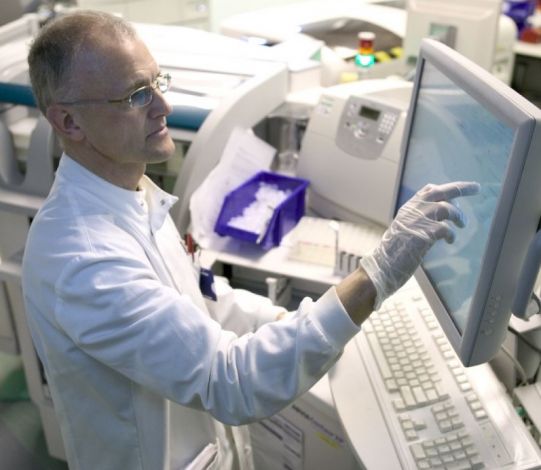Take part in the first major European prospective observational study on the benefits and risks of biologic therapies in IBD, patients who have never received biological agents or immunosuppressant (all 5-ASA and steroids formulations are permitted) patients receiving thiopurines alone patients treated with anti-TNF therapy alone without any concomitant immunosuppressant patients treated with anti-TNF therapy in combination with thiopurines or methotrexate patients: For investigators following IBD patients treated with vedolizumab.
The IBD BioResource aims to support studies looking at how genes and environmental factors influence disease and response to therapy. By gaining more information on the genes involved in Crohn’s disease and ulcerative colitis and by understanding the differences in their function and integrating information regarding environmental influences including the microbiota we hope to gain insights regarding causal mechanisms, potential new therapies and treatment approaches for IBD to reduce the burden of disease, and begin to think about a cure.
Also, by working together with the NIHR BioResource, The IBD BioResource can benefit from being able to access a robust and tested system of re-call for volunteers to take part in medical research studies based on their genotype and/or phenotype.
This is a UK-wide Project aimed at finding genetic factors involved in causing Primary Biliary Cholangitis (PBC, formerly known as Primary Biliary Cirrhosis). The UK-PBC Genetics Study is part of the National Institute for Health Research (NIHR) Rare Disease - Translational Research Collaboration (RD-TRC), which provides a world-class NHS research infrastructure to support fundamental discoveries in rare diseases that may be used to improve patient care.
UK Collaborative Study to determine the Genetic Basis of Primary Sclerosing Cholangitis PSC.
At the present time the cause of PSC is as yet not known. However, it is believed that genetic factors may be important in the cause of this disease. We are currently collaborating in a UK wide study trying to find those genetic factors that cause PSC. If the study is successful, researchers may have a better chance of developing more effective treatments for this disease and understanding what causes PSC.
Patients taking part in this study will be asked to donate either blood sample or a saliva sample so researchers at Cambridge can extract the DNA from this sample and use it to potentially find the genes that cause PSC.
Recent evidence suggests that side effects to some drugs may be determined by our genes (the basic building blocks of life). The purpose of this study is to identify the genes which determine the side effects caused by the drugs above. It is hoped that we might then be able to develop a test to predict which patients will develop these serious side effect before patients are treated. The PRED4 study involves giving consent, and supply a blood sample and a health professional in the hospital accessing your medical record to collect some medical history.
Predicting serious drug side effects include the following arms:
- Anti- TNF induced demyelination in inflammatory disease
- Thiopurine induced liver injury in IBD
- Thiopurine induced leucopaenia in IBD
- Thiopurine induced pancreatitis (TIP) in IBD
- PPI induced nephritis
- Sulfasalazine induced neutropenia in IBD and RA.


